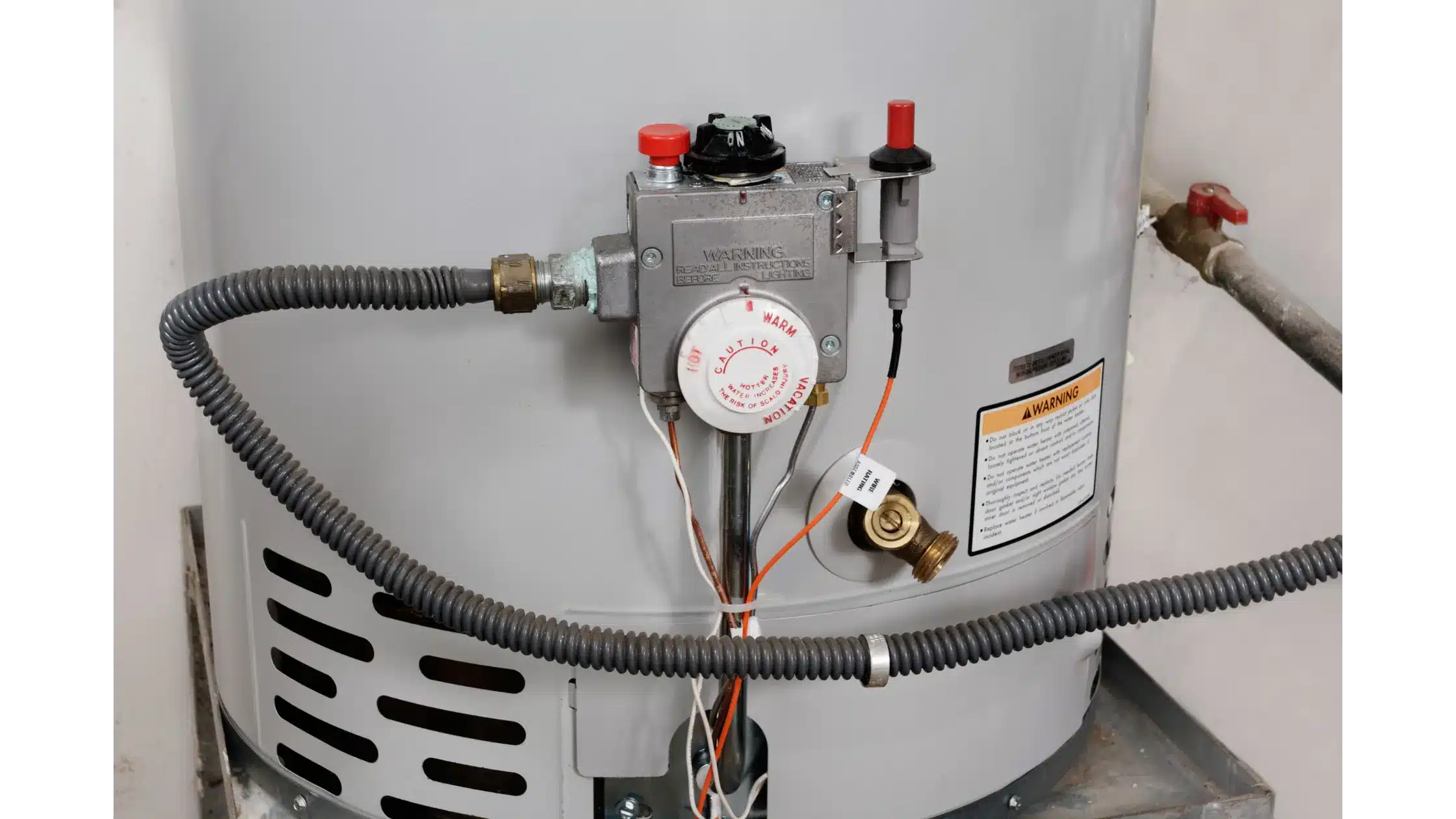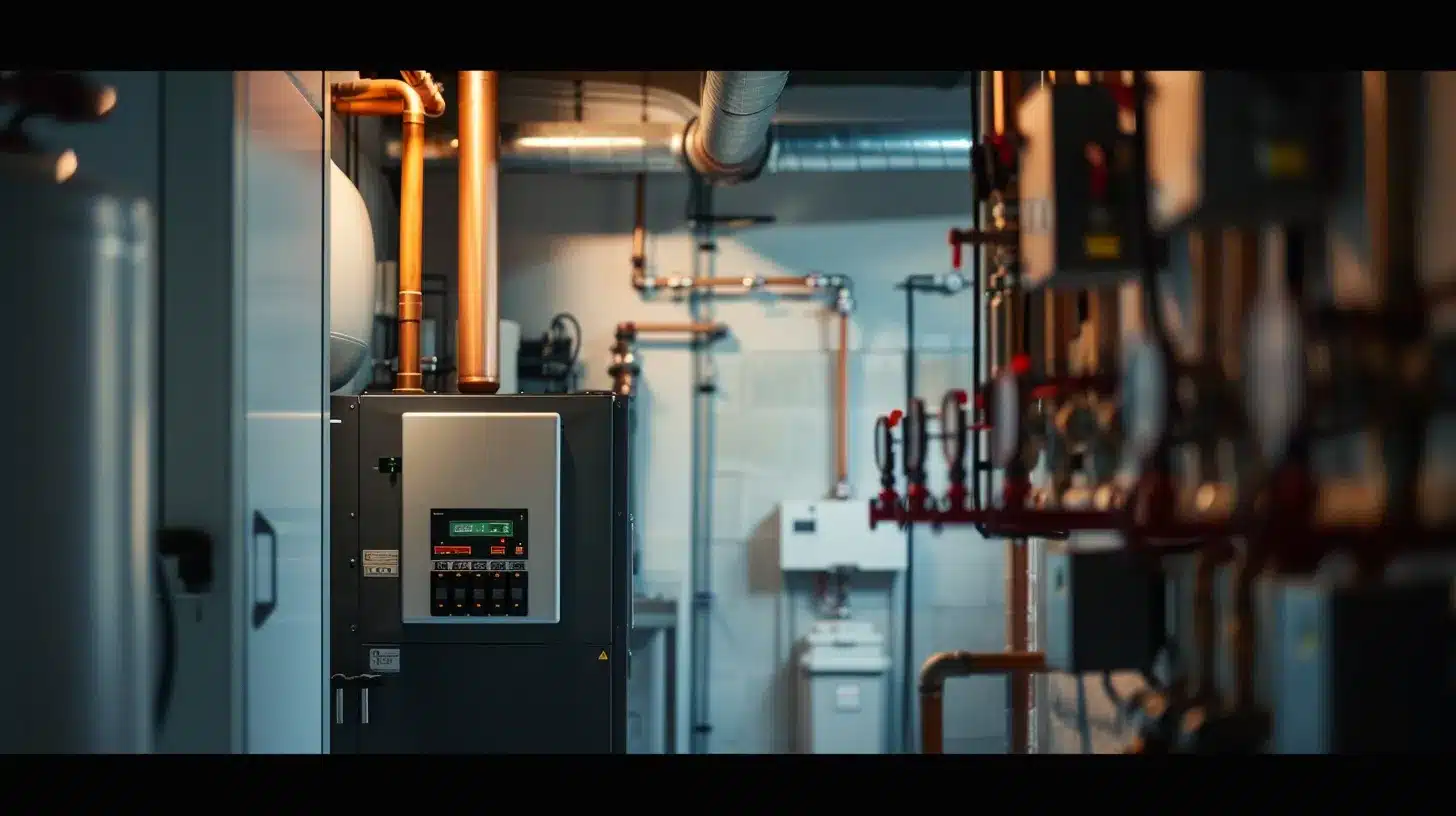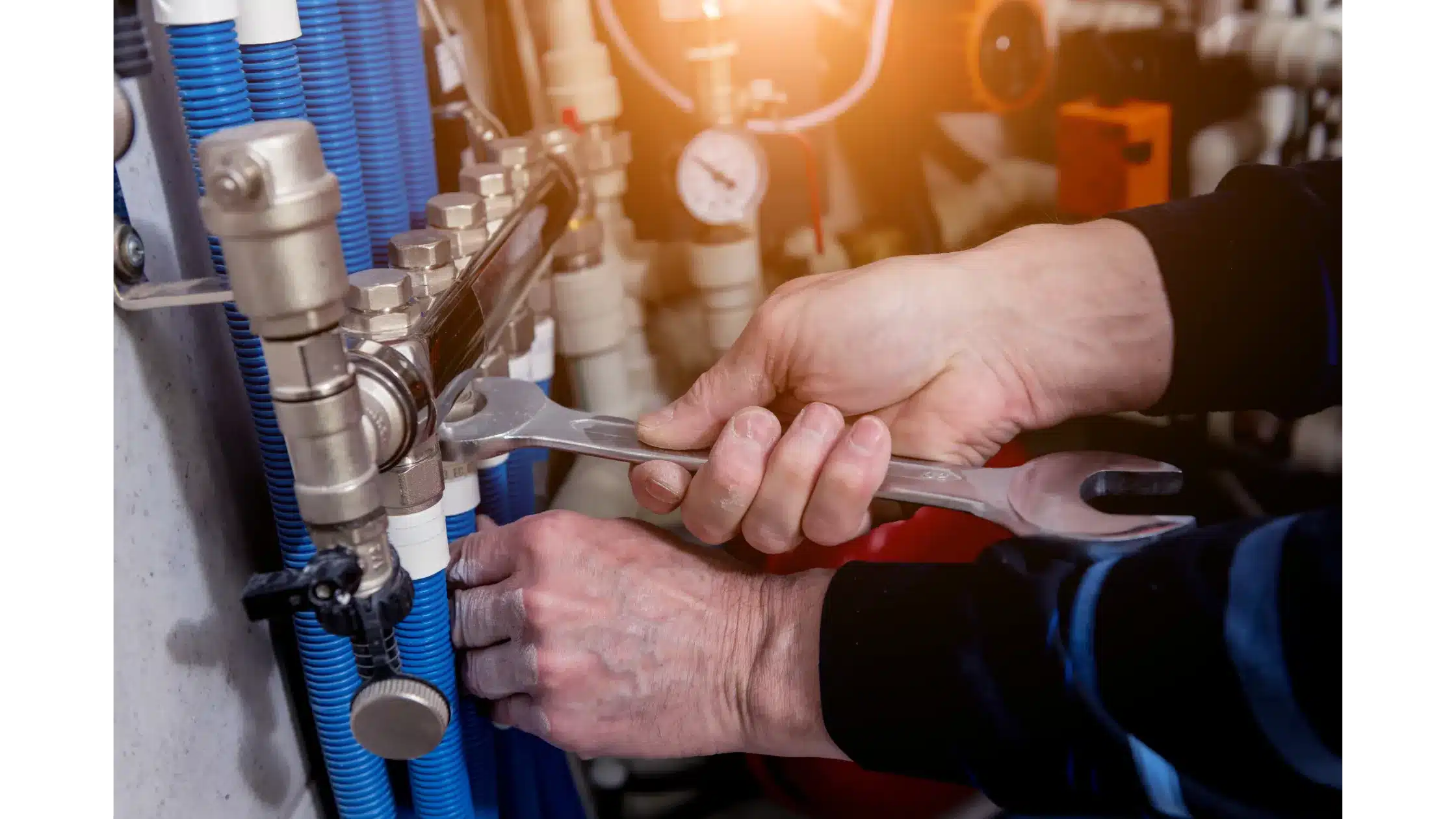When it comes to keeping a home comfortable, a boiler plays a crucial role. Many homeowners, in Columbus, overlook signs of wear and tear, which can lead to costly repairs or safety hazards. This article will highlight five critical indicators that signal your boiler needs urgent attention, including unusual noises and drops in indoor air quality. By recognizing these signs early, readers can avoid significant issues and extend the lifespan of their heating systems. Understanding when to seek expert assistance for heat pump repair could save both time and money while ensuring the safety and comfort of the home.
Key Takeaways
- Regular maintenance is essential for safe and efficient boiler operation
- Homeowners should monitor for unusual noises and leaks as warning signs
- Understanding pressure gauge readings helps identify potential boiler issues
- Immediate action is crucial upon noticing signs of trouble to prevent costly repairs
- Professional inspections ensure optimal performance and safety of boiler systems
Understanding How Your Boiler Functions

Boilers play a crucial role in heating systems, often working alongside air conditioning and furnace units to ensure comfort in homes. Regular maintenance is essential to prevent issues and ensure optimal performance. A well-functioning boiler should operate efficiently, delivering heat through pipes without excessive noise or inefficiencies. This section covers common boiler systems, the significance of maintenance, and proper operation to help identify critical indicators for urgent attention.
Overview of Common Boiler Systems
Boilers come in various types, each operating on distinct principles to provide heating. Common systems include combi boilers, which heat water directly from the mains for quick access, and regular boilers that require a separate hot water tank. Regularly scheduled inspection of these units is essential, as debris can accumulate and impact combustion efficiency, emphasizing the importance of understanding how your boiler functions for optimal performance.
| Boiler Type | Description | Key Features |
|---|---|---|
| Combi Boiler | Heats water directly from the mains. | Compact, no need for a separate tank. |
| Regular Boiler | Requires a hot water tank. | Suitable for larger homes; provides hot water even when heating. |
| System Boiler | Stores hot water in a cylinder. | Good for high-demand households; offers convenient hot water supply. |
Importance of Regular Boiler Maintenance
Regular maintenance of a boiler is vital to prevent emergency situations related to leaks, mineral buildup, or other potential failures that could disrupt heating. Proactive inspections can help identify issues early, significantly reducing the need for emergency service calls and costly repairs. A well-maintained system not only operates efficiently but also ensures the safety and comfort of those within the home, making it essential for homeowners to prioritize routine checks and maintenance.
How a Well-Functioning Boiler Should Operate
A well-functioning boiler operates efficiently within the home heating system, ensuring consistent warmth without excessive noise or fluctuations in temperature. Essential components, such as the pump, work seamlessly to circulate hot water throughout the building while maintaining appropriate humidity levels. Homeowners should remain vigilant for signs of carbon monoxide buildup, which could indicate potential malfunctions requiring immediate boiler repair services to ensure safety and comfort.
The boiler hums with purpose, but beneath that noise, trouble may lurk. Recognizing the signs of failure can prevent disaster and keep your home safe.
Identifying Warning Signs of Boiler Issues
Recognizing unusual noises from the boiler can signal impending issues needing attention. Changes in heat output or temperature may affect the home’s comfort, while observing leaks or water damage around the boiler points to potential problems. Monitoring pressure gauge readings is vital for safety, and detecting unpleasant smells can indicate malfunction. Addressing these signs promptly can enhance the longevity and efficiency of the water supply system, preventing additional energy waste.
Recognizing Unusual Noises From Your Boiler
Recognizing unusual noises from a boiler can be crucial in identifying underlying issues that may affect its efficiency and safety. For example, if a homeowner hears banging, it could indicate a build-up of corrosion or sediment that is hindering heat transfer. Addressing these sounds promptly can prevent further damage and ensure optimal performance, ultimately helping to reduce the carbon footprint associated with heating systems and leading to improved customer service from maintenance professionals.
Noticing Changes in Heat Output or Temperature
Changes in heat output or temperature are significant warning signs that a boiler may require immediate attention. Homeowners should monitor their heating system closely; noticeable drops in warmth can signal potential issues affecting efficiency or safety. It is advisable to schedule service with a qualified technician promptly to assess the system’s performance, particularly if the boiler is located in the basement where conditions may not be optimal for operation. This proactive approach not only helps maintain the warranty on the equipment but also ensures a comfortable living environment.
Observing Leaks or Water Damage Around Your Boiler
Leaks or water damage around a boiler can pose significant risks to the entire heating system and the safety of the home. Customers should monitor their boiler closely for any signs of moisture or puddles, as these symptoms often indicate a malfunctioning component, such as a broken thermocouple or a failing radiator valve. Swift action is paramount; addressing these issues promptly can prevent more serious damage, maintaining both system efficiency and the comfort of the living space.
Monitoring Pressure Gauge Readings for Abnormal Levels
Monitoring pressure gauge readings is essential for identifying potential boiler issues that may require immediate upkeep. Abnormal levels can indicate underlying problems, such as airflow restrictions or compressor issues, which could lead to system failure. Regular checks, coupled with knowledge of what constitutes normal pressure, enable homeowners to detect fluctuations early, facilitating timely leak detection and preventing further complications.
Detecting Unpleasant Smells Related to Boiler Operation
Unpleasant smells emanating from a boiler can indicate significant issues, particularly with the heat exchanger. A burning odor may suggest overheating or insulation breakdown, while a sulfur-like scent can signal a gas leak, which is a serious safety concern. Homeowners should pay immediate attention to these odors and contact a qualified technician for prompt inspection, as neglecting these warning signs can lead to dangerous situations involving carbon monoxide exposure and compromised heating and cooling systems.
Once a problem is spotted, the next step is to measure how the boiler is performing. Understanding its efficiency can guide you in ensuring it runs well and saves you money.
Evaluating Boiler Performance and Efficiency

Understanding energy bills and usage spikes is essential in identifying boiler performance issues. Homeowners should also consider the age of their boiler, as older units may experience increased wear and inefficiencies. Assessing the quality of the home’s heating system can highlight water damage or workflows that drain energy resources. Each of these factors will guide homeowners on when to request service for their unit to maintain optimal functionality.
Understanding Energy Bills and Usage Spikes
Understanding energy bills and usage spikes is crucial for homeowners to gauge their boiler‘s performance and efficiency. An unexpected increase in heating costs may indicate that the boiler is not functioning optimally, necessitating thorough examination, which could lead to boiler repair or even emergency boiler repair. If these spikes are accompanied by other warning signs such as irregular temperature maintenance or signs of carbon monoxide, it may not only be a financial hazard but also a significant safety concern requiring immediate attention.
Considering the Age of Your Boiler
The age of a boiler significantly impacts its performance and efficiency. Older systems are prone to wear and tear, leading to potential failures and issues like gas leaks or pilot light malfunctions. Routine checks are necessary to ensure that the flame remains stable and that there is no mold growth or moisture buildup, which could compromise the heating system‘s effectiveness. Recognizing these factors can guide homeowners in determining when to consider replacement or repairs to maintain safety and comfort:
| Indicator | Potential Issue | Action Required |
|---|---|---|
| Age of Boiler | Increased risk of failure | Schedule a professional inspection |
| Pilot Light Issues | Flame instability | Check for gas leaks or blockage |
| Mold Growth | Moisture buildup | Clean and dry affected areas |
Assessing the Quality of Your Home’s Heating
Assessing the quality of a home’s heating involves examining components like valves, gaskets, and overall system efficiency. For instance, ensuring that valves are functioning properly can directly impact boiler performance, which is crucial for achieving optimal customer satisfaction. If homeowners encounter issues such as inconsistent heating or unusual noises, seeking professional help for potential furnace repair or commercial boiler repair becomes essential to maintain comfort and reduce long-term costs.
Boilers may run well for years, but neglect can lead to troubles that loom large. Understanding the risks of ignoring issues will shed light on the path to smarter maintenance choices.
Consequences of Ignoring Boiler Problems

Delaying repairs on a boiler can lead to several risks, including issues with the thermostat, fluctuating pressure, and compromised water heating efficiency. Prolonged problems may result in significant financial implications, as repairs become more extensive and costly. Furthermore, safety hazards associated with faulty boilers can jeopardize the well-being of the home and its occupants, making it crucial to address these concerns promptly.
Understanding the Risks of Delayed Repairs
Delayed repairs on a boiler pose significant dangers, often leading to escalating issues like decreased efficiency and potential system failures. Homeowners risk encountering situations that cause higher energy bills or uncomfortable living conditions. Additionally, neglecting necessary maintenance can result in serious safety concerns, such as gas leaks or carbon monoxide exposure, putting the health and safety of residents at stake:
| Risk of Delay | Potential Consequence | Recommended Action |
|---|---|---|
| Increased Energy Costs | Higher utility bills due to inefficiency | Schedule an inspection |
| System Failures | Complete breakdown of heating system | Conduct routine maintenance |
| Safety Hazards | Risk of gas leaks or carbon monoxide poisoning | Immediate contact with a qualified technician |
Financial Implications of Prolonged Boiler Issues
Prolonged boiler issues can lead to significant financial strain on homeowners. As the efficiency of a boiler declines, energy bills tend to increase due to undue consumption of fuel to maintain heating levels. Additionally, the cost of repairs escalates if problems are allowed to fester, often resulting in the need for more extensive work and potential system replacements, which can be a substantial financial burden in the long run.
Safety Hazards Associated With Faulty Boilers
Faulty boilers can create serious safety hazards in homes. One major risk is the potential for gas leaks, which can lead to fires or even explosions if not addressed immediately. Additionally, malfunctioning boilers may release carbon monoxide, a colorless and odorless gas that poses severe health risks. Homeowners should recognize that ignoring these urgent issues could jeopardize their safety and that of their families, making regular maintenance and early detection of problems essential for a safe living environment.
Ignoring boiler issues can lead to bigger troubles. Knowing when to call in the experts can save both time and money.
When to Seek Professional Boiler Repair Services

Recognizing when DIY fixes are insufficient is critical for maintaining boiler safety and efficiency. Homeowners should know how to find qualified boiler repair technicians who can handle complex issues. During a professional boiler inspection, expect a thorough assessment of the system’s condition and an outline of necessary repairs, ensuring optimal performance and safety in the home.
Recognizing When DIY Fixes Are Insufficient
Homeowners should recognize that certain boiler issues cannot be resolved through DIY methods. If multiple warning signs persist despite attempts to fix them, such as unusual noises, significant leaks, or erratic temperature control, professional boiler repair services are essential. Complex problems often require the expertise of trained technicians who can diagnose and address underlying issues that may not be evident to an untrained eye:
| Issue | DIY Attempt | Recommended Action |
|---|---|---|
| Unusual Noises | Tightening components | Consult a technician for inspection |
| Leaks | Using sealant | Schedule professional assessment |
| Temperature Fluctuations | Adjusting thermostat settings | Contact a boiler expert |
Finding Qualified Boiler Repair Technicians
Finding qualified boiler repair technicians is essential for maintaining a safe and efficient heating system. Homeowners should seek professionals with proper certifications and experience in handling various boiler issues, as this expertise ensures accurate diagnoses and effective repairs. Consulting online reviews and requesting recommendations from friends or family can further assist in identifying reputable technicians who can address specific concerns and restore the boiler‘s functionality.
What to Expect During a Professional Boiler Inspection
During a professional boiler inspection, technicians will perform a comprehensive evaluation of the system to ensure it operates efficiently and safely. They typically assess key components such as the heat exchanger, burner, and flue system, checking for any signs of wear or potential hazards. Homeowners can expect a detailed report on the boiler’s condition, along with recommendations for necessary repairs or maintenance, which is crucial for preventing unexpected breakdowns in the future:
| Inspection Component | Purpose | Potential Issues Identified |
|---|---|---|
| Heat Exchanger | Ensures proper heat transfer | Corrosion or blockages |
| Burner | Evaluates combustion efficiency | Flame instability |
| Flue System | Checks for gas exhaust safety | Obstructions or leaks |
Understanding when to call for help is key to keeping your boiler running well. As you consider your options, common questions about boiler repair often arise, revealing important insights that every homeowner should know.
Frequently Asked Questions About Boiler Repair
This section addresses essential concerns regarding boiler maintenance and repair. It outlines the main indicators that signal urgent attention is needed, offers guidance on performing a basic boiler inspection, and explains the recommended actions to take upon noticing signs of trouble. Additionally, it clarifies how long homeowners can wait before scheduling repairs, ensuring clear insights for effective boiler management.
What Are the Main Indicators That My Boiler Needs Urgent Attention?
Several key indicators signal that a boiler requires urgent attention. Homeowners should be alert for consistent leaks, unusual noises such as banging or whistling, and erratic temperature control, all of which can indicate deeper mechanical issues. Additionally, a pressure gauge reading in the red zone or the presence of unpleasant odors can further underscore the need for immediate professional assessment to ensure safety and prevent costly repairs.
How Can I Perform a Basic Boiler Inspection?
Performing a basic boiler inspection involves checking several key components to ensure safe and efficient operation. Homeowners should visually inspect the boiler for any signs of leaks or corrosion around the unit, as these issues can indicate underlying problems. Additionally, reviewing the pressure gauge for readings within the normal range and listening for unusual sounds during operation can help identify potential malfunctions. Regular inspections empower homeowners to address minor issues early, preventing more significant failures and enhancing the boiler‘s overall performance.
What Should I Do if I Notice a Sign of Boiler Trouble?
If a homeowner notices any signs of boiler trouble, such as unusual noises, leaks, or fluctuating temperatures, the first step is to turn off the system. This action helps prevent further damage and potential safety hazards. Next, it is advisable to contact a qualified boiler technician who can conduct a thorough inspection and identify the underlying issues. Prompt attention to these warning signs not only ensures safety but also aids in maintaining the boiler‘s efficiency and longevity, ultimately saving the homeowner from costly repairs in the future.
How Long Can I Wait Before Getting My Boiler Repaired?
Homeowners should not delay seeking boiler repair once signs of trouble appear. Ignoring issues can lead to more severe malfunctions, increasing repair costs and compromising safety. Ideally, any warning signs should prompt immediate action from a qualified technician to assess and address the situation, ensuring that the heating system remains safe and efficient for optimal home comfort.
Conclusion
Identifying critical indicators that signal a boiler needs urgent attention is vital for maintaining home safety and comfort. Homeowners must stay alert to signs such as unusual noises, leaks, temperature fluctuations, and abnormal pressure readings. Addressing these issues promptly can prevent costly repairs, enhance efficiency, and safeguard against serious safety hazards like gas leaks or carbon monoxide exposure. Proactive monitoring not only ensures optimal boiler performance but also contributes to a safe living environment for families.
Reach Out To Us
Be sure to reach out to us if you have issues with your boiler system or need an install. Our number is 614-863-6666, and we are conveniently located in Columbus, Ohio.
